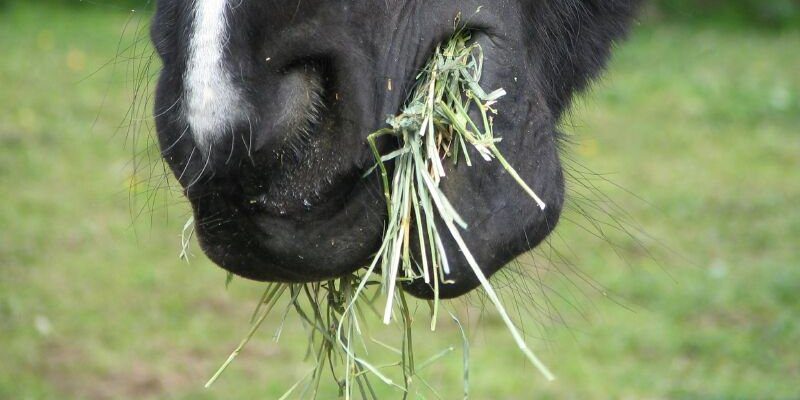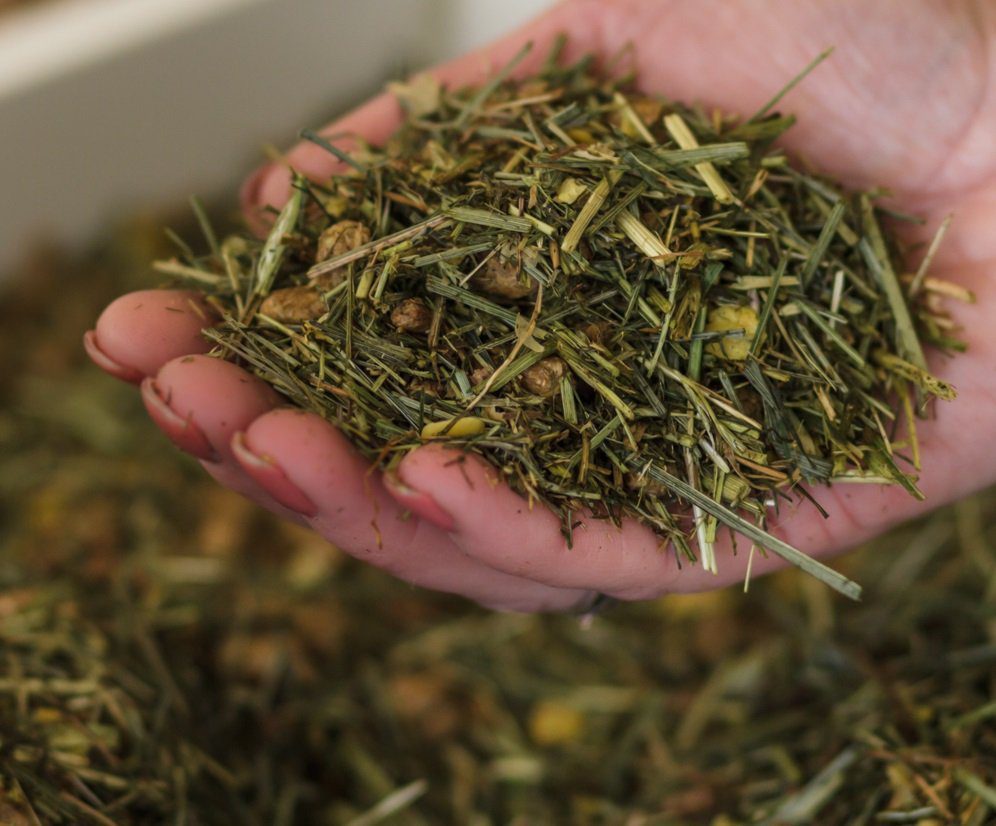Dr David Marlin
Dr David Marlin is a world renowned scientist and has been involved with horses his whole life. After completing his PhD looking at the effects of exercise and training on Thoroughbred racehorses David has gone on to work for The Animal Health Trust, as a consultant to the British Equestrian Federation, a member of the BEF’s world class performance scientific advisory group and as a chair of the International Conference on Equine Exercise Physiology. He has published over 200 papers on topics including nutrition, exercise physiology and thermoregulation.
You can find out more at drdavidmarlin.com, an independent information resource for all equestrians featuring unbiased science-based research, product reviews, webinars, podcasts and articles covering all aspects of the equine world.
Diagnosing equine gastric ulcers (EGUS)
There has been great interest in other tests for equine gastric ulcers, such as the blood sucrose test (Hewetson et al, 2017). But currently the only 100% reliable way to know if your horse has EGUS is for your vet to undertake a gastroscopy; passing an endoscope into the stomach.
So, let’s assume your vet has visited your horse, undertaken a gastroscopy and there are gastric ulcers present. What next? Firstly, when reading this article please bear in mind that this is general information that may not apply to every case. Your vet will have assessed your horse and may take into account other factors in prescribing treatment that may appear different to general advice given in this article.
How will my vet decide on treatment?
However, due to cost or other reasons, it is not uncommon for horses suspected of having gastric ulcers to be treated with medications or gastric ulcer supplements. In these cases, a significant improvement following treatment would suggest that ulcers had been, or are, present. The type of treatment and management your vet will recommend will likely depend on:
- The type of ulcers.
- The severity of the ulcers.
- The suspected cause of the ulcers e.g. stress, low forage, high starch diet, etc.
- Any other health issues your horse has e.g. colic.
It is likely that your vet will recommend treatment if ulcers are present, particularly as only around 5% of squamous ulcers will heal spontaneously (Zavoshti and Andrews, 2017).
What types of equine medication are available?

Important: Please do remember that if you are competing in any affiliated competitions or racing, let your vet know – because certain medications are restricted for competition.
Drugs that suppress acid-secretion
The most commonly used type of drug for equine gastric ulcers in either the squamous (upper) region (ESGD) or glandular (lower) region of the stomach (EGGD), are drugs that decrease secretion of acid into the stomach and raise the pH of the stomach contents. The best known of these is the proton pump inhibitor (PPI) omeprazole (known by trade names such as GastroGard, Peptizole and UlcerGard). Another drug which may be prescribed for your horse’s ulcers is ranitidine (known by the trade name Zantac). Ranitidine also makes the stomach less acid but by a different mechanism and is known as an H2-receptor antagonist. Omeprazole is generally considered more effective than ranitidine.
For squamous ulcers, omeprazole at 4mg/kg (2g in a 500kg horse) once a day for 28 days has been shown to result in healing of 70-77%. For glandular ulcers, whilst older studies and one recent study showed healing rates of 70-80% within 28 days of treatment, more recent studies have suggested the healing rate with omeprazole at 4mg/kg once a day may be as low as 25%.
Omeprazole alone or without management changes may not be effective for all horses, as 50% of horses with squamous ulcers were the same or worse after 90 days treatment with the standard dose of omeprazole (4mg/kg/day).
Long-term use of drugs that reduce acidity in the stomach may also be undesirable for other reasons. The stomach is acidic for two main reasons. Firstly, to kill potentially harmful micro-organisms such as bacteria, moulds and yeasts ingested with feed. Secondly, the acidity in the stomach is the first stage in protein digestion. In addition, whilst not demonstrated in horses, long-term use of PPIs in people can lead to bone loss and an increased risk of gastro-intestinal infections.
Drugs that coat the stomach
The most commonly used coating agent is a drug called Hexadeca-μ-hydroxytetracosahydroxy[μ8-[1,3,4,6-tetra-O-sulfo-β-Dfructofuranosyl-α-D-glucopyranoside tetrakis(hydrogen sulfato)8-)]]hexadecaaluminum – or Sucralfate for short! Sucralfate binds to stomach ulcers and aids healing. Sucralfate is not usually considered effective in treating squamous ulcers and is usually given with acid-suppressors such as omeprazole for treating glandular ulcers.
Can antibiotics help my horse with ulcers?
In people, stomach ulcers are often associated with infection by Helicobacter pylori and treatment with appropriate antibiotics is often highly effective. Helicobacter pylori does not seem to be a cause of gastric ulcers in horses and the current advice is “the use of antibiotics should be limited to treatment of chronic non-healing ulcers”.
Are antacids suitable for horses?
Antacids such as aluminium hydroxide or magnesium hydroxide are not controlled drugs but may be prescribed in combination with other medications, particularly for squamous ulcers. They may offer short term pain relief but are not considered to be effective treatments on their own.
New medications for equine gastric ulcer treatment
A number of new medications are being investigated for treatment of EGUS but these are not commonly in use. These include drugs that increase the rate of emptying of the stomach (e.g. Bethanechol), somatostatin analogues (Octreotide) and synthetic prostaglandins (e.g. Misoprostol).
Top tips for managing equine ulcers with nutrition
Alongside medical treatment, there are several ways you can help manage ulcers with good nutrition practises. Check out our useful tips for feeding horses dealing with gastric ulcers.
- Unrestricted access to good quality pasture or forage (hay or haylage).
- If your horse needs hard feed, this should be split into four or five smaller meals throughout the day. High starch feeds should be avoided if possible.
- Feed forage before hard feed.
- For horses that need energy, oil is a safer source of energy than starch.
- Avoid feeding sharp chaffs as these can cause or worsen ulcers.
- If your horse is in work, consider feeding fat-coated electrolytes as ordinary electrolytes can cause or worsen gastric ulcers – think of rubbing salt in an open wound.
- Increase turnout time.
- Ensure water available at all times.
- Minimise stress.
- Feed a small meal of non-sharp chaff 30 minutes before exercise.
- As hindgut discomfort may lead to stress and altered eating behaviour, if your horse suffers from signs of hindgut dysfunction (e.g. mild colic, loose droppings), consider a high dose protected live yeast pre and probiotic.
Does oil actually prevent gastric ulcers in horses?
There appears to be a lot of advice on various forums about feeding corn oil to treat or prevent gastric ulcers in horses. Much of this has supposedly been on the advice of vets!
The idea to feed corn oil to horses with gastric ulcers goes back to a paper published in 2004 by Cargile et al. However, these authors likely got the idea from a 1987 study which showed that feeding oil to rats prevented experimentally induced peptic ulcers (Jayaraj et al, 1987).
One poorly designed study reported that feeding 45ml of corn to four ponies slightly decreased gastric acid secretion, BUT they did not scope the stomachs.
In a larger and properly designed study, feeding 240ml per day of refined rice bran oil or crude rice bran oil or corn oil for five weeks had no effect on gastric ulcer formation. Conclusion? Oil will not treat or prevent ulcers. Replacing starch energy in the diet with oil as an energy source may help in management of gastric ulcers.
Can I treat & manage ulcers with supplements?
Important: If you are competing in any affiliated competitions or racing, use supplements from companies that are part of the BETA NOPS scheme. This will significantly reduce the risk of testing positive for prohibited substances.

There has been a significant amount of research into herbs, nutraceuticals, trace minerals, vitamins and plant extracts for the management of equine gastric ulcers. Zavoshti and Andrews (2017) suggest the following reasons for this:
- The high expense of pharmacologic agents.
- Daily handling and oral administration of paste or tablet formulations.
- Pharmaceutical agents require a prescription.
- Gastric ulcer recurrence is common once treatment is discontinued.
- Long-term treatment with omeprazole results in high gastric juice pH and might negatively affect digestion in the stomach or small intestine.
- Use of medications in performance and show horses is now forbidden or under tight control.
- Cost of gastroscopy and cost of medication.
For these reasons, many owners may choose to try feeding a supplement. A variety of evidence supports the use of ingredients such as vitamin E, lecithin, pectin, sea buckthorn, ficus glomerata extract and thioredoxin (from crushed yeast) for gastric ulceration. In contrast, corn oil and aloe vera have not been shown to be effective.
If a horse has signs suggestive of EGUS, then feeding a supplement should produce a rapid improvement in behaviour, especially around feeding, temperament and, over a longer period, improvement in condition.
Whichever approach you try, if your horse’s condition does not improve or worsens, then you should consult your vet as soon as possible.
by Dr David Marlin
References:
Diagnostic accuracy of blood sucrose as a screening test for equine gastric ulcer syndrome (EGUS) in adult horses. Hewetson M, Sykes BW, Hallowell GD, Tulamo RM. Acta Vet Scand. 2017 Mar 11;59(1):15.
Therapeutics for Equine Gastric Ulcer Syndrome. Zavoshti FR and Andrews FM. Vet Clin North Am Equine Pract. 2017 Apr;33(1):141-162.
European College of Equine Internal Medicine Consensus Statement—Equine Gastric Ulcer Syndrome in Adult Horses. J Vet Intern Med. 2015 Sep-Oct;29(5):1288-99. Sykes BW, Hewetson M, Hepburn RJ, Luthersson N, Tamzali Y.
Any questions about nutrition and gastric ulcers? Contact our friendly expert nutrition team at nutrition@purefeed.com or call us on 01458 333 333.
Let us help you cut through the chaff – request a FREE bespoke diet plan today.






